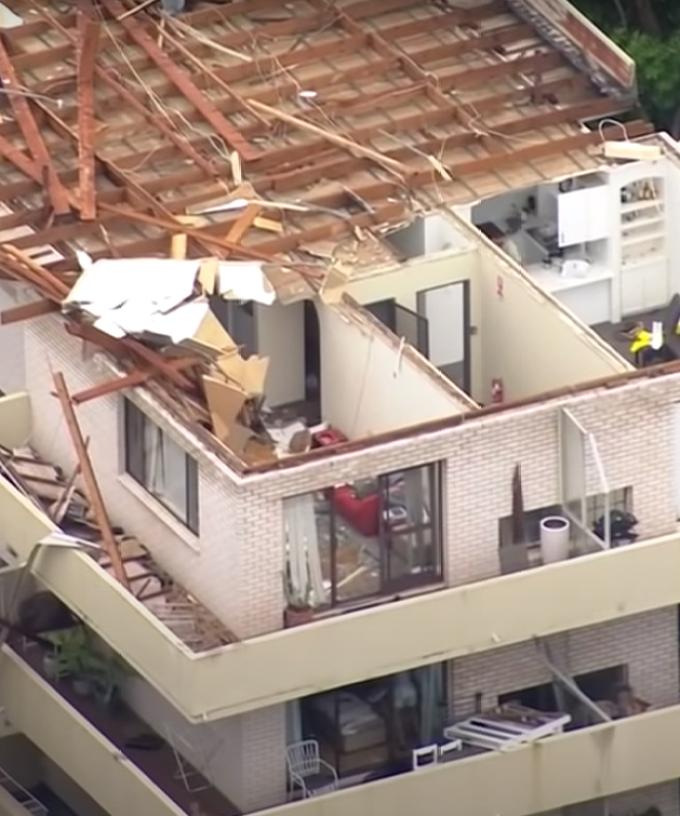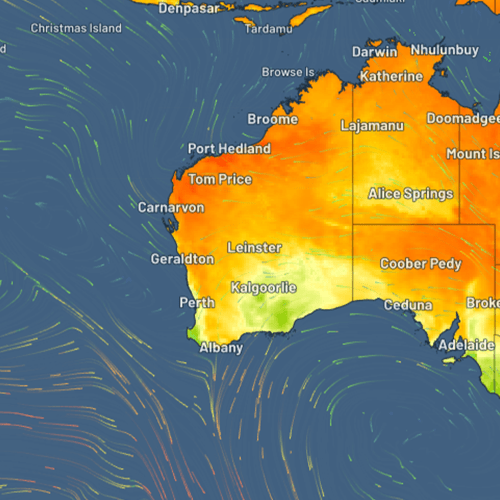About 900 of Sydney’s northern beaches residents are still without power after the damaging weekend storm blacked out more than 30,000 properties.
Ausgrid crews have been working around the clock to restore the power after trees and other debris hit powerlines during Sunday’s brief tornado-like storm.
The storm, which particularly impacted beachside areas from Narrabeen to Dee Why, claimed the life of 68-year-old yoga instructor Susan Cobham, ripped roofs off apartment buildings and blacked out 35,000 homes.
There are now fewer than 900 customers without power and it’s hoped power will be restored to the majority of them on Wednesday.
“It’s been a big effort and particularly overnight,” Ausgrid’s Emma Shanks said.
Huge storm cell just rushed through Narrabeen on Sydney’s northern beaches. Trees are down everywhere, traffic lights and blackouts everywhere. Gusts were ferocious. pic.twitter.com/JXaIhAG8Hq
— Luke Hopewell (@lukehopewell) December 19, 2021
The storm caused extensive damage to the northern beaches power network, with multiple downed powerlines as well as damage to a substation.
“We had to physically replace power poles, restring power lines, remove massive trees and tree branches and … replace the subs and the transformers that sit at the top of the power poles,” Ms Shanks said.
Northern Beaches Council chief executive Ray Brownlee wants the area declared a disaster zone, as hundreds of insurance claims are filed and some residents face abandoning Christmas plans for a second year.
“We are asking for the NSW government to support our council, local businesses and residents to be able to access disaster funding and support to assist as the clean-up and recovery continues,” Mr Brownlee said.
The extensive clean-up was set to continue for many days.
“This is being felt hard by business and residents who had Christmas plans abandoned last year thanks to the Northern Beaches COVID lockdown,” Mr Brownlee said.
A woman killed in a freak storm at Narrabeen is being remembered as a “beautiful soul”. https://t.co/FoIHhHtNjc #7NEWS pic.twitter.com/K0ncTg8yHR
— 7NEWS Sydney (@7NewsSydney) December 20, 2021
More than 700 insurance claims have been filed, with more expected in coming days.
The Insurance Council of Australia warned disaster chasers were in the area, offering tree and debris removal and requesting payment upfront in cash, but either doing a poor job or charging far too much.
“They can leave families, the elderly and vulnerable Australians much worse off, with large bills and homes that remain badly damaged,” ICA chief executive Andrew Hall said.
“The ICA urges anyone who is approached by a disaster chaser to call the relevant authorities.”
AAP







